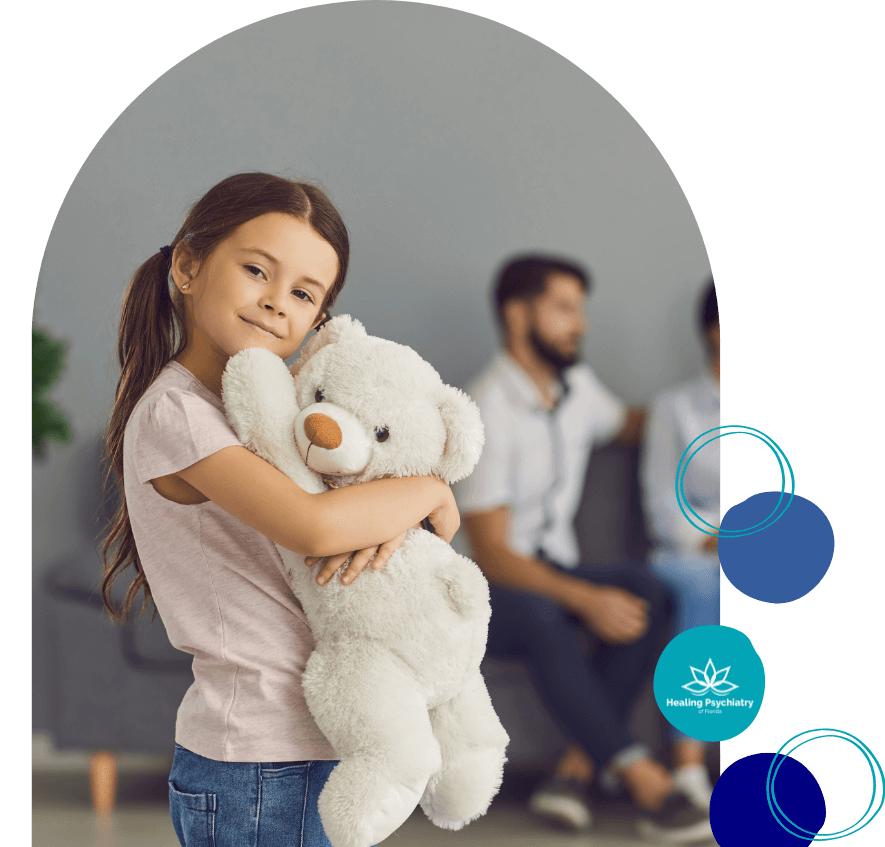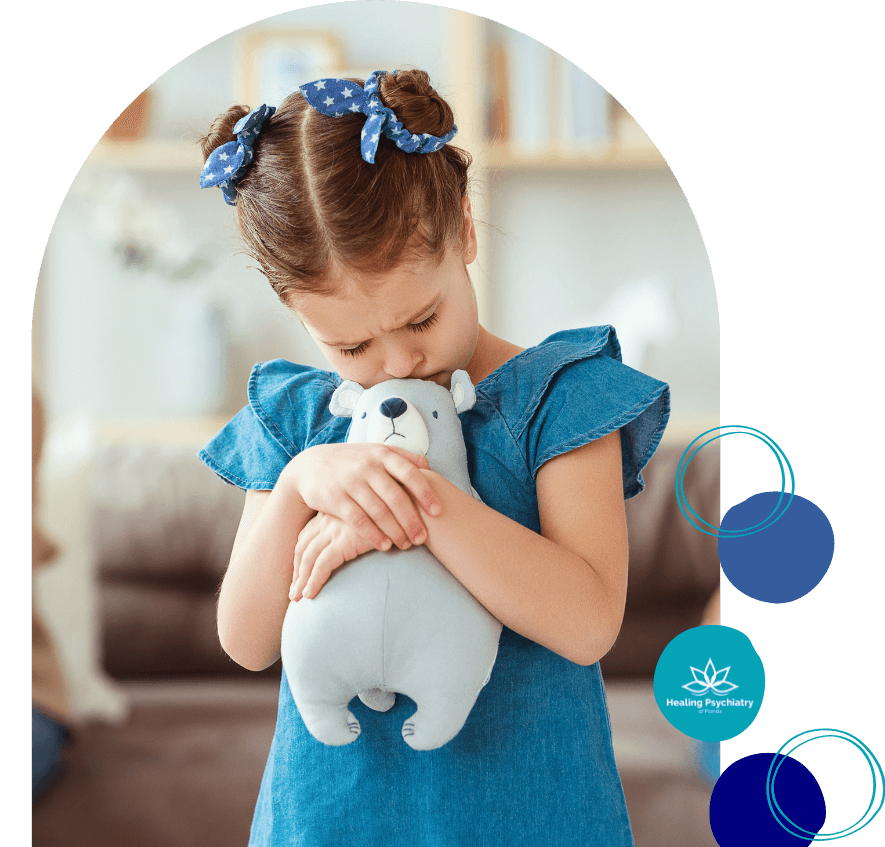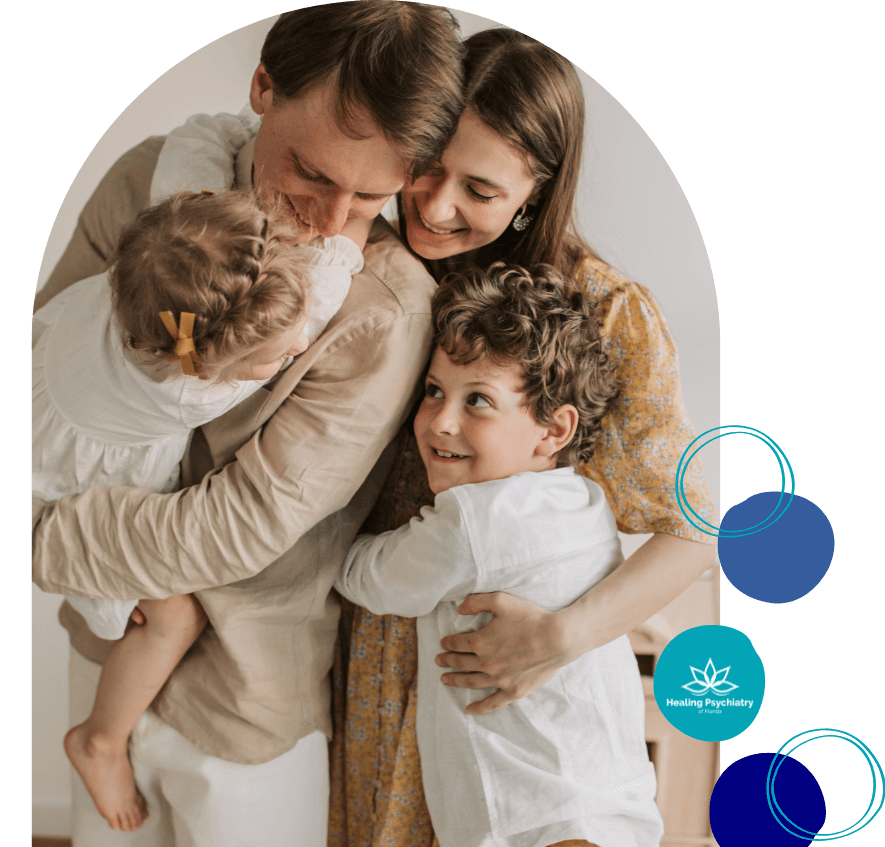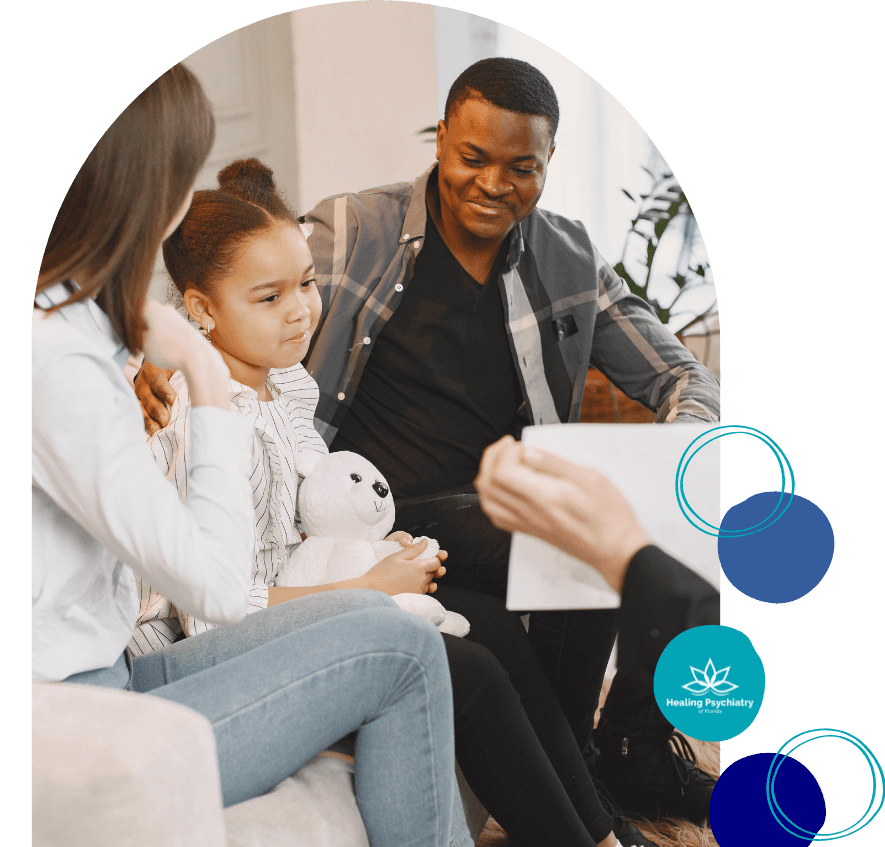Children’s Therapy for Divorce
Guiding children of divorce through emotional support, coping skills, and safe, therapeutic connection.
When parental divorce reshapes a child’s life, therapy provides clarity and stability. Children’s therapy for divorce gives young minds the tools they need to understand, adapt, and express their feelings without fear. Research shows that most children experience emotional upheaval during their parents’ separation. Still, with the right support, they build resilience and develop effective coping skills that carry into adolescence and beyond.
Our therapists work directly with these emotional responses using therapeutic techniques such as play therapy, cognitive behavioral therapy CBT, and dialectical behavioral therapy. Every chosen approach meets the specific needs of your child’s emotional and developmental stage, helping children cope within divorced families and strengthening family bonds.

Start Your Session Today
How Emotional Support Therapy Helps Children Feel Safe and Heard
Children experience divorce as a profound life transition, one that reshapes daily routines, family life, and emotional safety. Our therapy offers a consistent routine and a supportive environment, giving children a safe space to explore their emotional responses. With the guidance of a trained mental health professional, children learn how to process intense emotions, build trust with both family members and therapists, and develop the ability to self-regulate in moments of distress.
Practical Coping Strategies Used in Sessions with Children
Therapists use structured techniques to teach coping strategies appropriate to your child’s age and experience. For very young children, this may involve play therapy activities that make abstract feelings easier to understand—such as drawing homes, storytelling, or naming emotions with toys. School programs and family therapy models are introduced where appropriate, reinforcing these skills at home and in daily environments. Most children benefit from seeing their emotions reflected, named, and normalized, especially during the unpredictable shift between one parent’s home and the other.
Creating Neutral Ground for Children of Divorced Parents
Children of divorce often experience tension related to former spouses or unresolved parental conflict. In therapy, we create a neutral space that is removed from the emotional history of the adults. This allows children to express feelings openly and without pressure. Our focus stays on helping children cope, not placing blame or analyzing the divorce itself.
Teaching Skills That Children Can Use Every Day
Teaching coping skills is an essential part of every session. Children don’t just talk—they do. They draw, roleplay, breathe, reflect, and build habits that they can use when family stress arises again. A child with anxiety about transitions between households may learn to create a travel routine or keep familiar items close. Another may rehearse what to say when asked uncomfortable questions by the other parent. We help children navigate challenges with practical, rehearsed tools that grow their confidence and support children’s long-term well being.
Insurances Accepted










See what others are saying about Healing Psychiatry of Florida
Meet Our Specialists: Focused Expertise in Children’s Divorce Therapy
Our child therapists are licensed mental health professionals with advanced training in play therapy, family systems, and cognitive behavioral therapy. They specialize in helping children express complex emotions through age-appropriate methods, whether it’s through drawing, roleplay, or guided conversation. Each specialist brings years of experience working with children of divorce, understanding the emotional needs of both very young children and older children navigating shifting family roles.




Recognizing and Addressing Child Anxiety During Divorce
Child anxiety is one of the most common mental health concerns in divorced families. It shows up as sleep problems, physical complaints, or school refusal, especially among school-age children and older children. When divorce counseling includes targeted support for anxiety, children begin to show signs of emotional resilience. They gain the tools to manage fear around family changes and begin to reestablish a sense of routine and trust.
Our therapists use evidence-based methods like cognitive behavioral therapy to help children adjust to new routines, reduce negative reactions, and separate their own feelings from family tension.
Divorce Counseling That Prioritizes the Child’s Emotional Well-Being
Divorce counseling helps children feel emotionally safe throughout the separation process. By focusing on the child’s experience, our therapy helps children understand what’s happening, express their concerns, and find consistency within the new family structure.
We work with many parents to reinforce counseling aims at home, ensuring that emotional support continues between sessions. Our sessions also allow parents to understand better how their behavior, such as ongoing conflict or inconsistent communication, can influence the child’s well-being. By aligning therapeutic goals with both parental insight and child experience, our divorce therapy offers a balanced, child-first approach to family change.


Structured Divorce Therapy to Support Children Through Life Transitions
Divorce therapy provides children with a structured path for understanding change and building resilience. Unlike unstructured emotional venting, this process teaches children effective coping strategies and encourages emotional growth. We combine therapeutic techniques with predictable session formats to provide comfort, clarity, and forward motion.
We also connect children to additional resources that are helpful, such as support groups, school programs, and routines that can anchor their days. For many children, knowing what to expect each week provides a sense of control in the middle of emotional upheaval. Therapy becomes a consistent foundation that helps children adjust, express their feelings, and build healthy patterns for the future.
FAQs: Children’s Therapy for Divorce
What happens during a child’s therapy session?
Sessions are tailored to your child’s age, emotional needs, and communication style. Very young children may engage in play therapy, while older children might use art, storytelling, or direct conversation to express feelings. Each session is focused on helping children regulate emotions, understand family changes, and build coping skills they can use in daily life.
When should I consider therapy for my child after divorce?
If your child shows signs of distress—changes in sleep, appetite, school behavior, or social withdrawal—it’s a good time to start. Most parents notice these signs within the first few months of separation or after major family transitions. Therapy can help children adjust early and prevent more serious mental health issues from developing.
Do both parents need to be involved in therapy?
How does therapy support children with anxiety related to divorce?
We use therapeutic techniques like cognitive behavioral therapy and dialectical behavioral therapy to help children recognize anxious thoughts and learn strategies to manage them. These methods are especially useful for school age children and older children who are more aware of family dynamics and may internalize tension between former spouses.
What if my child doesn’t want to talk?
That’s completely normal, especially for children of divorce who may not yet feel safe expressing emotions. Our therapists use nonverbal methods like play, drawing, and routine-based activities to gently build trust. Over time, children learn to communicate in ways that feel comfortable and empowering.
Is therapy only for children with severe emotional issues?
No. Children’s therapy for divorce is preventive as well as therapeutic. It supports emotional development and resilience, even when no diagnosable issue is present. Most children benefit from having a consistent space to process change and reinforce healthy coping strategies during a significant life transition.
What can I do at home to support my child’s progress?
Consistency is key. We help parents establish predictable routines, reinforce positive coping skills, and reduce exposure to parental conflict. Most parents find that the more aligned their behavior is with therapy goals, the more confident and secure their children feel.
How long does children’s therapy for divorce typically last?
Duration varies depending on the child’s needs. Some children benefit from a short series of structured sessions, while others may need longer-term support, especially if other mental health issues emerge. We regularly review progress and adjust goals with the family.
Is this therapy effective for families who have been divorced for years?
Yes. Even when divorce is not recent, unresolved emotional patterns or family tension can affect children. Our approach works for both recent and long-term divorced families, particularly when major life transitions—like remarriage, relocation, or adolescence—bring up new challenges.
Contact us
For more information about our systems and services, contact Healing Psychiatry of Florida.
Healing Psychiatry of Florida
108 W Citrus St, Altamonte Springs, FL 32714
help@healingpsychiatryflorida.com
Opening Hours
Monday – Thursday: 8AM – 7PM
Friday: 8AM – 5PM
Saturday: Closed
Sunday: Closed
OCD Therapy Altamonte Springs, FL
